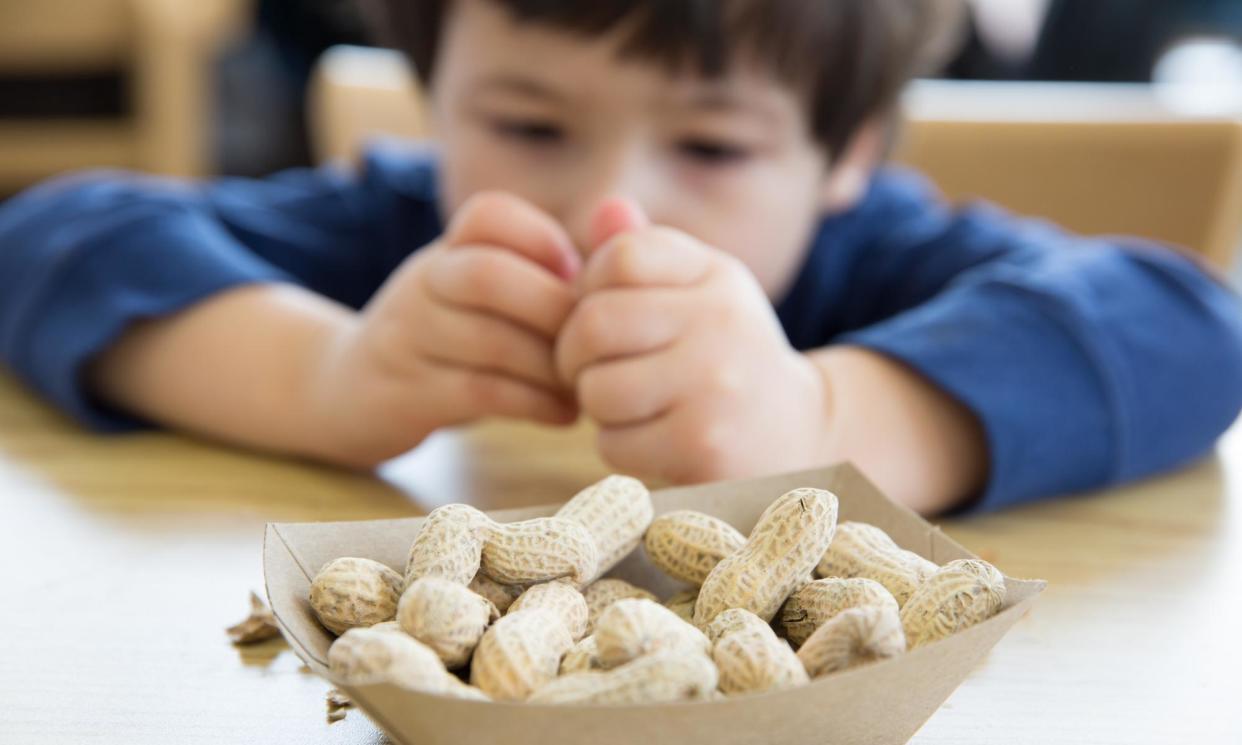NHS trial uses daily doses of food allergens to tackle severe reactions

Children have been able to enjoy foods that previously would have triggered potentially life-threatening allergic reactions after they took part in a “life-transforming” NHS clinical trial, doctors have reported.
A pioneering £2.5m study is using daily doses of everyday food products, taken under strict medical supervision, rather than drugs to train the bodies of children as young as two to tolerate an allergen.
The approach – known as oral immunotherapy (OIT) – means children living with food allergies may no longer have a reaction if they eat something that accidentally contains the allergen.
“We must wait until the trial is complete for the full picture but we are very pleased with the results we are seeing so far,” said the study’s chief investigator, Hasan Arshad, a professor of allergy and clinical immunology at the University of Southampton.
In total, 139 children and young people aged between two and 23 with a food allergy to peanuts or cow’s milk have begun treatment on the trial.
It is being funded by The Natasha Allergy Research Foundation, which was set up by the parents of Natasha Ednan-Laperouse. She died aged 15 in 2016 after experiencing a severe allergic reaction to sesame baked into a Pret a Manger baguette.
Sibel Sonmez-Ajtai, a paediatric allergy consultant at Sheffield Children’s NHS foundation trust, said: “This study is enabling us to do something we would never have dreamed of doing before – giving patients the foods we know they are allergic to.
“This treatment is not a cure for a food allergy, but what it achieves is life-transforming. To have a patient who has had anaphylaxis to 4ml of milk to then tolerate 90ml within six to eight months is nothing less than a miracle.”
Thomas Farmer, 11, who was diagnosed with a severe peanut allergy when he was one, can now eat six peanuts a day after joining the trial in Southampton.
“It will also hopefully mean that he will be able to eat a wider variety of food as we won’t be so concerned about accidental exposure,” his mother, Lauren, said. “For Thomas to be able to achieve all this with no medicine, just off-the-shelf foods, is amazing.”
Grace Fisher, five, who has a milk allergy and joined the trial in Newcastle, is now drinking 120ml of milk a day. Her mother, Emma, said: “Grace is over six months into this journey and is doing amazing. She is currently on 120ml of milk and loves her daily hot chocolates.”
The trial is being run in Southampton, London, Leicester, Newcastle, and Sheffield. It will also be run in Scotland, with plans for Bristol and Leeds to join.
Final results are expected in 2027. If successful, it could provide more evidence for everyday foods treatment to be made available on the NHS.
“If Natasha were alive today, this is exactly the type of research she would have loved to be part of,” said Natasha’s mother, Tanya Ednan-Laperouse. “We are so happy that some children with peanut and milk allergies are already seeing the benefits of using everyday foods under medical supervision to treat their allergic disease.”
Arshad said the trial was seeking to change people’s lives for the better. He added: “Our ultimate aim is a life without the risk of allergic reactions – reactions which for some can be severe and life-threatening.”

 Yahoo News
Yahoo News 
